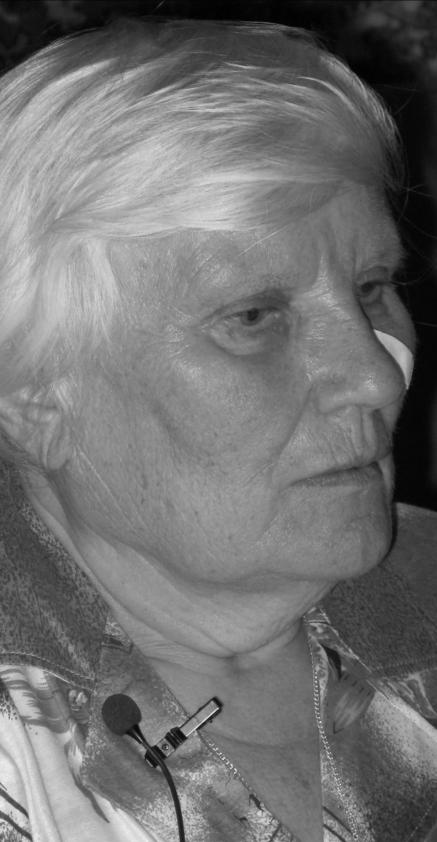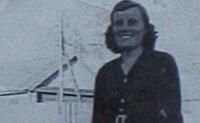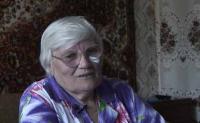BioGraphy
Elena TALANINA
Elena Talanina was the youngest daughter of a large, well-off farming family and spent her childhood in Lithuania until, on 24 March 1949, the “soldiers” took her away with her mother. The deportation was because her brother, who had run the family farm since their father’s death, had refused to join the kolkhoz; and also because they were relatively well off.
Elena and her mother were deported to Bolshaya Murta, Krasnoyarsk region, where the teenager worked to support herself and her mother, now too old to work. Despite a harsh youth spent on the kolkhoz, she considers their reception by the locals was friendly, especially since they were so poor. In the early days, Elena and her mother survived on parcels from Lithuania.
She married a Russian, which influenced her decision to remain in Russia after her release in 1956, because she was well aware of the difficulties her husband would have in settling in a country where he didn’t speak the language. In 1958, Elena and her family moved to Bratsk, Irkutsk region. They were among the hundreds of thousands of Soviet farm workers who left the kolkhoz to try their luck in town. This model-city was a showpiece of the Soviet power industry and after a hard start their life gradually got better.
Today, Elena Talanina lives in her flat in Bratsk. She says little about her past as a deportee, preferring to talk to her grandchildren and great-grandchildren about her war memories and the fighting she saw between the Red Army and the Germans.
The interview with Elena Talanina was conducted in 2009 by Emilia Koustova and Larissa Salakhova.





